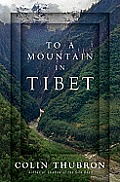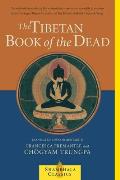Guests
by Colin Thubron, March 11, 2011 11:04 AM
 Promoting a travel book in the United States — even one like mine, on Tibet — is to promote a minority genre. Enter a bookshop in New York or LA, and you'll find travel narratives lurking among guide books somewhere at the back, or perhaps not there at all. In Britain, on the contrary, the travel section may occupy pride of place. Numerous talented British writers have excelled at the travel book. Jan Morris, Bruce Chatwin, Patrick Leigh Fermor, and Jonathan Raban spring to mind. Even top US travel writers such as Bill Bryson and Paul Theroux started their careers in England.
Why should this be so? What is it about my country that should generate both a love of armchair travel and the writers to supply it?
Various explanations propose themselves:
- That we British haven't yet understood that we've lost an empire and travel on as if we owned the world.
- That we have realized all too well and are making up for it by writing arrogant travelogues.
- That our system of boarding schools inures us to physical and emotional discomfort and equips us perfectly for hardship.
- That the same system makes us emotionally cold, so we can look on the world with writerly superiority.
- That we are too unimaginative to think that anything bad will happen to us.
In my own case I have no idea how much of three or four is applicable. As for five, well, the craft of travel writing involves taking certain risks. But on the road I feel curiously divorced from them. My great fear is not that something bad is going to happen to me, but that nothing will happen at all. Then there would be no book. Travel writers, like journalists, are hunting for copy. And like journalists, we may capitalize on tragedies and accidents.
But the accidents, of course, may happen to us.
While in Tibet, walking toward the high pass around the sacred mountain of Kailas, I met a Hindu woman coming the other way. Her group had failed to reach the pass, she said; it was too hard. Two of them had already died of heart failure.
I heard this only with the mute astonishment we reserve for things that happen to other people. I, surely, would be all right. After all, I wanted to write about this
|
Guests
by Colin Thubron, March 10, 2011 12:36 PM
 Travel writing is a demanding genre. It requires both the toughness to make a hard journey and the sensitivity to record it. They don't often coexist. There are travelers who write, and writers who travel. Some can make crossing a suburban street fascinating; others bore you while describing a feat of exploration in the Amazon. People say that the world is shrinking, that there is nowhere left to go. They are quite wrong. The world is never constant. Some thirty-five years ago I drove overland from London to India. It was fairly easy to do then, cruising through eastern Turkey, Iran, Afghanistan, Kashmir and Pakistan — a beautiful journey, and only dangerous by chance incident. But you could not do it now.
Yet in those days virtually the whole of the Soviet Union and China were inaccessible. So as the curtain rises on one part of the world, it falls on another. And every change needs travelers to witness it: not only because the world is in flux, but because the tastes of travelers change with every generation.
In a sense, we travel writers make the world our own. Objectivity disappears. Open a book by Bill Bryson or Paul Theroux, and you are inhabiting a particular author's head as well as his chosen country. That is the pleasure of it: the world seen through the eyes of another.
People tell me my own written world is lush and melancholy. Odd, this, to me. I don't feel very lush or melancholy. Only this last book has a sad tinge, written as it is after the death of my mother, and touched by Tibetan ideas of the afterlife. No revelation or catharsis: more a broken meditation as I climb a valley of the Ganges into Tibet.
"You think you are making a trip," wrote the Swiss writer Nicholas Bouvier, "but soon it is making you — or unmaking you."
And that is how it should
|
Guests
by Colin Thubron, March 9, 2011 10:56 AM
 As I start on a promotional tour for my travel book To a Mountain in Tibet, I find I am traveling with the ghosts of others: the writers who have affected me — and those whose books I have just read, with others waiting in my luggage. Among these last I can't help mentioning Gregor von Rezzori, who died in 1998 (published by the New York Review of Books). His provocatively-titled Memoirs of an Anti-Semite is in fact a grand and beautiful Central European novel of a kind barely possible now, and his more recently published The Snows of Yesteryear (I have only just started it) is building into a masterpiece of oblique autobiography.
Then there is The Hare With Amber Eyes, a strikingly original memoir by Edmund de Waal, based on the fate of his family's unique Japanese collection: a book that has taken Britain by storm. De Waal seems quite unfazed by his book's success. He is more interested in making porcelain, of which he is a master.
And finally, Authenticating Tibet: Answers to China's 100 Questions, by Anne-Marie Blondeau and Katia Buffetrille. Sounds a bit daunting, but in fact this is a handbook to the complexities of the whole China-Tibet question. Very fair and authoritative. It's been a godsend to me while preparing to answer queries from audiences at my talks... except that the difficult questions, of course, are never the ones you anticipate.
These talks will mostly be in independent bookshops. As in my native Britain, it is these enterprising places that take the initiative in inviting authors in. Have bookshops ever not felt in some way besieged? Fifty years ago, it was rumored, the bookshop (and literacy itself) would be killed off by television. Now the threat comes from the demon ebook....
Half a century ago, while starting work briefly as a sales representative for a British publisher, I asked a colleague how I would be able to identify the owner when I entered his bookshop. "That's easy", came the reply. "He'll be the one with the long face."
Long face or no, he has my
|
Guests
by Colin Thubron, March 8, 2011 11:20 AM
 I have never grown used to the way readers respond to my books. In Britain travel writers (and I'm principally a travel writer) get romanticized. I suppose it's something to do with being a character in your own book — this first-person "I" journeying in some region of the earth where the reader is (very sensibly) not going to go. It smacks of old-fashioned heroism. My just-published To a Mountain in Tibet will probably do little to dispel this image. I've just been promoting it in England, and however much I talk about Tibetan Buddhism, the audiences invariably ask, What's in my rucksack?, or What was my most dangerous moment?, or Why do I travel alone?, etc. etc.
Travel writing classically deals in broad horizons, yet it incites a deluge of questions about the author. Here are some answers:
Question: What's in your rucksack?
Answer: Almost nothing. The only thing I'm sure to take is a compass, since I have a very strong sense of direction, which is always wrong.
Question: You are very old now. How long can you go on traveling?
Answer: Oh dear. I didn't know I looked so old. As to your question, I don't know. I still feel young (a common delusion of the old). I'll probably travel until I run my wheelchair over a cliff somewhere.
Question: What was your most dangerous moment on this trip?
Answer: I was afraid only of mountain sickness, which is no respecter of age, fitness, gender, etc. I was going above 18,500 feet. In the end my Sherpa started getting headaches, but I was OK. Strange.
Question: Where will you go next?
Answer: I'm planning a novel. So I'm staying put for now. Question: Are you married?
Answer: No, but I have a long-time partner. She is very beautiful and intelligent (and will read this). None of this may quite dispel the romanticism that clings to travel writers (despite the countervailing view that we are post-colonial imperialists). But fifty years ago the patron saint of travelers, St. Christopher, was formally decanonised by the Vatican. Apparently he did not exist.
|
Guests
by Colin Thubron, March 7, 2011 11:12 AM
 Once a book is published, it seems to take on a life of its own. As its author, you lose control over it. It's a bit like a grown-up child. What will happen to it? How will it make its way? Will anyone love it? My book on a journey to Tibet (just published) had a strange beginning. Most of my travel books have started in fascination with distant regions of Asia. Sometimes the writing has proved unintentionally healing, since I've traveled in the countries that I was brought up to fear — the old Soviet Union, China — and experience of them has made them human to me.
But To a Mountain in Tibet was different. I started the journey trekking up the valley of the Karnali river in Nepal — the highest source of the Ganges — then over the frontier to the sacred mountain of Kailas in Tibet. I was unsure if I would write about it. By my standards the journey was short and very intense — and it followed the death of my mother — the last of my family to survive. I'd imagined the walk a kind of meditation.
 Then, it grew on me strangely. The mountain has been a focus of Buddhist and Hindu pilgrimage for perhaps a thousand years. Devotees circle it clockwise for 32 miles (it has never been climbed) and the pilgrimage at one point involves a ritual death, or shedding of the past. Tibet is a death-haunted culture, at least in Western eyes (the only Tibetan text that you're likely to have read is The Tibetan Book of the Dead). Then, it grew on me strangely. The mountain has been a focus of Buddhist and Hindu pilgrimage for perhaps a thousand years. Devotees circle it clockwise for 32 miles (it has never been climbed) and the pilgrimage at one point involves a ritual death, or shedding of the past. Tibet is a death-haunted culture, at least in Western eyes (the only Tibetan text that you're likely to have read is The Tibetan Book of the Dead).
All this might suggest a neat, cathartic journey. But mine wasn't quite like that. Rather I was witnessing beliefs about the afterlife — alien faiths in action — from the position of a reluctant agnostic. And the Buddhist afterlife doesn't bring much comfort to anyone from a Christian culture — there's no individual survival.
So when people ask me: Did this journey change you? — I answer "Yes." But I don't know how or why. The arid splendor of the Tibetans' land and the spacious certainty of their beliefs — despite all that they have suffered — have affected me in some way I cannot quite
|